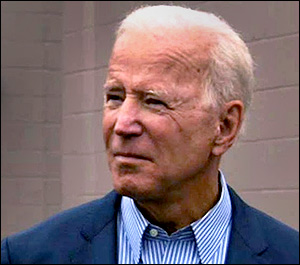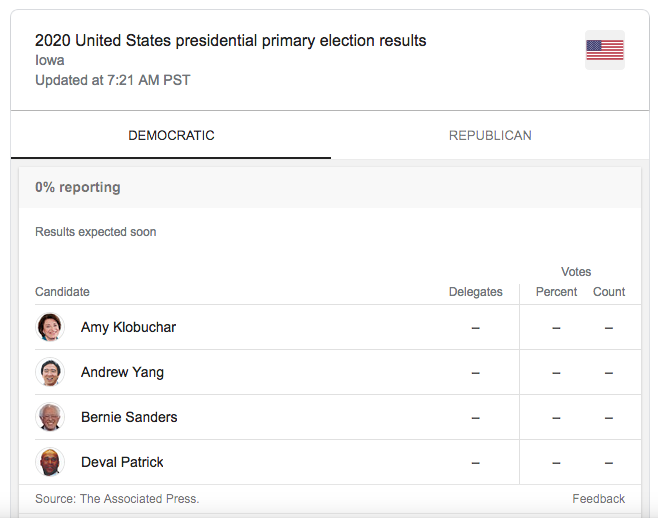By Jim Ellis

2020 Presidential Candidate and former vice president, Joe Biden (D)
Recent polls suggest Sen. Warren will do no better than third place, meaning Biden, who can no longer be considered the national front runner, again looks to be lagging behind in fourth place among the Democrat candidates. Does another fourth-place finish doom his national campaign? Would Biden have a path to the nomination even if failing to win yet again in Nevada on Feb. 22?
The answers to the two queries are no and yes, and South Carolina is the key. After a win in the Palmetto State, he would then need to strongly springboard into Super Tuesday just three days hence on March 3. On that day, citizens in 14 states and one territory are scheduled to cast votes, and half of those states are in the South, a region where the former vice president has been dominant in polling.
Sen. Bernie Sanders (I-VT), the likely national leader headed to Super Tuesday, should find some relative strength in the southern states, and billionaires Tom Steyer and Michael Bloomberg will likely also break the 15 percent threshold in some of these places and others to score a limited number of bound delegate votes. If Biden wins most or all of the southern states with approximately 30 percent of the aggregate vote, it would likely give him approximately 200 delegates, a number that certainly could boost his viability within a national context.
From a delegate count perspective, even if he fails to break 15 percent to qualify for convention votes in New Hampshire tonight and doesn’t win Nevada, he is still not going to be unreasonably behind. In Iowa, the projected delegate count suggests that former mayor, Pete Buttigieg, will record 14 first-ballot national convention votes, Sanders’ 12, Warren 8, Biden 6, and Sen. Amy Klobuchar (D-MN), 1.



 Feb. 3, 2020 — The final Iowa Caucus research surveys are providing very different results, while what is traditionally the state’s most reliable poll, from the Des Moines Register through Selzer & Company, is being held back.
Feb. 3, 2020 — The final Iowa Caucus research surveys are providing very different results, while what is traditionally the state’s most reliable poll, from the Des Moines Register through Selzer & Company, is being held back.

